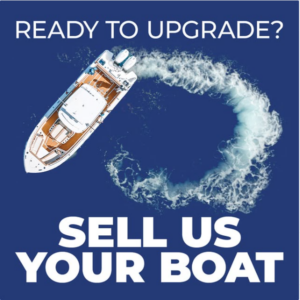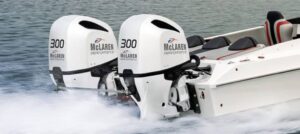Boat Insurance Guide: Costs & Coverage
Why Separate Boat Insurance Matters
While some homeowners’ policies may provide limited coverage for small boats, they often exclude essential marine-specific protections like salvage work, wreck removal, pollution, or environmental damage. If you plan to boat beyond inland waterways, it’s crucial to work with a marine insurance specialist.
Factors Affecting Boat Insurance Coverage
Insurers assess multiple factors before issuing a policy. Almost any vessel can be insured, but pricing and coverage depend on the following:
- Operator’s Age and Experience – Experienced boaters sometimes receive discounts.
- Boat Age & Condition – Must meet US Coast Guard Standards at the time of construction.
- Length & Value – Larger and more expensive boats may require specialized coverage.
- Speed & Horsepower – High-performance boats often face higher premiums.
- Primary Use – Different policies exist for personal, commercial, and live-aboard boats.
- Boat Type – Coverage varies based on whether the boat is inboard, outboard, utility, cruiser, bass boat, or saltwater fishing boat.
- Operating Location – Inland lakes, rivers, coastal areas, or open ocean impact risk assessment.
- Ownership Structure – Multi-owner boats and houseboats without engines may have unique requirements.
Types of Boat Insurance Policies
There are two main types of boat insurance:
- Agreed Value Policy – Covers the boat at a fixed value determined when the policy is issued. While it costs more upfront, there’s no depreciation for total loss (though partial losses may be subject to depreciation).
- Actual Cash Value Policy – Less expensive initially but considers depreciation, meaning payouts will reflect the boat’s market value at the time of a claim.
What Boat Insurance Covers
Marine insurance applies to a variety of watercraft, including:
- Boats (small personal vessels)
- Personal Watercraft (PWC)
- Yachts (typically 27′ and larger, with broader coverage requirements)
- Sailboats
- Dinghies
- Rental Boats & PWCs
- Boat Club Coverage (for club members operating shared vessels)
- Professional Policies (for fishing guides, charters, and tournament travel)
Coverage Options
A comprehensive “All Risk” policy covers most risks unless specifically excluded. Standard exclusions include:
- Wear and tear, corrosion, or mold
- Manufacturer defects
- Ice and freezing damage
- Damage from animals
Additional coverage options include:
- Medical Payments – Covers injuries to boat occupants.
- Personal Effects – Insures items like fishing gear, electronics, and life jackets.
- Uninsured Boater Liability – Protects against accidents with uninsured boaters.
- Towing & Assistance – Covers emergency towing costs, which can run up to $400 per hour.
- Salvage Costs – Pays to remove the boat if it sinks or sustains major damage.
- Consequential Damage – Covers losses caused by gradual wear and tear.
- Cruising Extensions – Temporary coverage for international waters (e.g., Mexico or the Bahamas).
How to Choose the Right Policy
Consider Your Boating Habits
- Where You Boat: Inland, coastal, or open ocean
- How Often You Boat: Seasonal vs. year-round use
- Who Operates Your Boat: Some policies restrict additional operators
Questions to Ask Your Insurer
- How are damages evaluated and paid?
- Are emergency services like towing included?
- Does the policy cover environmental liabilities?
- Is there a discount for boater safety courses?
- Can I bundle my coverage with other insurance policies?
Cost Factors in Boat Insurance
Your premium is determined by:
- Cruising Area – Risk level varies by location.
- Safety Education – Completing a certified course may lower costs.
- Driving Record – A clean history can reduce premiums.
- Liability Limits – Higher limits increase costs.
- Deductible Amount – Higher deductibles lower premiums.
- Hurricane Preparedness – Having a storm plan may reduce rates.
Discounts to Reduce Your Premium
- Winter Layup Discounts – If your boat is stored in winter, you may save money.
- Good Driver Discounts – Both boating and auto records may be considered.
- Freshwater vs. Saltwater Use – Freshwater boating typically has lower risks.
- Multi-Policy Bundling – Insuring your boat with the same company as your home or car can lead to savings.
Frequently Asked Questions (FAQs)
Small Boat Insurance (Under 29’)
What is the best type of boat insurance?
- An “All Risk” policy provides the broadest protection, covering all damages except for specific exclusions.
How much should I insure my boat for?
- Opt for “Agreed Value” coverage to ensure full reimbursement for a total loss. Avoid policies that use “Actual Cash Value” calculations, as depreciation lowers payouts.
Who can operate my boat under my policy?
- Most policies allow any operator with your permission, but some restrict high-performance boats or PWCs.
What if my lender requires year-round insurance, but I store my boat in winter?
- Ask about a “lay-up” discount, which provides year-round coverage at a reduced rate during off-seasons.
Large Boat & Yacht Insurance (Over 29’)
What’s the difference between boat and yacht insurance?
- Yacht policies are more comprehensive, covering long-range travel, specialized equipment, and liability under maritime law.
What should a yacht policy include?
- Hull Insurance: Covers physical damage to the boat.
- Protection & Indemnity (P&I): Covers liability and legal defense.
- Jones Act Coverage: Protects crew members under maritime law.
- Replacement Cost Coverage: Ensures partial losses are reimbursed without depreciation.
What is Breach of Warranty Coverage?
- This protects the lender’s interest in your boat, ensuring their investment is covered even if policy terms are breached.
Final Thoughts
Before purchasing a boat, get insurance quotes based on your planned usage. Compare policies, assess available discounts, and ensure you’re adequately covered for your boating lifestyle. Consult a marine insurance specialist to find the best policy for your needs.
Editor’s Note: Information courtesy of the National Marine Lenders Association.




